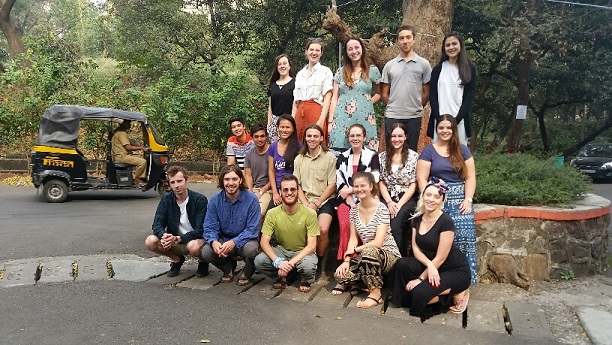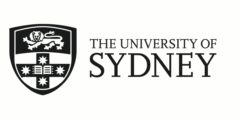
On Monday, 17 students majoring in political economy and geography arrived in Mumbai for a three week intensive field school experience. The field school is run by the Department of Political Economy and Geography in collaboration with three Indian universities/research institutions: the Tata Institute of Social Sciences (TISS), the Indian Institute for Health Management Research (IIHMR), and the Central University of Karnataka. The field school involves an intensive, integrated three-week program of classes and field visits addressing the political economy of development and environmental management in modern India. Students are engaged by Indian scholars and civil society groups working on issues of geo-political, economic and environmental importance and gain firsthand insight into the daunting challenges facing one of the most important nations in the contemporary global economy.
The first week of the program will be run at the TISS campus in Mumbai. Students will stay on campus at the Tata Institute of Social Sciences and participate in tailored classes and city field visits developed by the local academic staff, in close collaboration the University of Sydney convenors. This component of the field school will address India’s ‘national story’ of development, and raise questions about the contested process of economic development, environmental sustainability and social inequality.
In the second week of the program, students fly up to Jaipur in Rajasthan. Here they will stay with our partner organisation, the Indian Institute for Health Management Research. The IIHMR has specialist expertise in the delivery of social programs to poor and remote rural parts of India. This week’s program will provide an opportunity to see rural India firsthand and will include day trips to local villages and national parks where ystudents will begin to develop a critical appreciation of the contested relationship between economic development, human security and ecological sustainability.
The third week of the program takes us to Hyderabad where students will drive a few hours out to the Central University of Karnataka, in the regional city of Gulbarga. In this part of Northern Karnataka students will be exposed to some of the most pressing issues facing Tribal communities in India, and their efforts for political and economic security within a rapidly modernizing global economy.
The blog posts that follow will capture the student experience of contextualized learning and their reflections.
Skip to content

